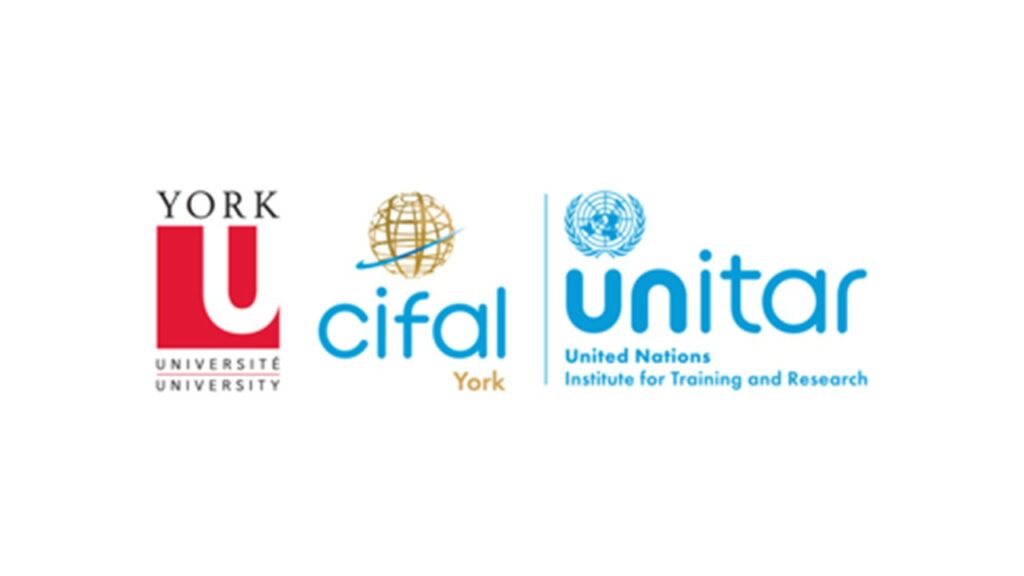August 26-August 30, 2024
8:30-11:30 AM EDT (Toronto)


Course Description
Computer simulations in form of agent-based, discrete event, and system dynamics are invaluable tools for planning and management of disaster and humanitarian response and relief operations. Using these tools and methods, humanitarian and disaster management agencies and planners can optimize their response strategies, enhance their coordination, and maker their operations more effective, efficient, and understandable. This practical and hands microcredit summer course is ideal for those already in emergency management humanitarian response fields as well as those who are interested in joining these professional worlds. The course teaches participants how to use AnyLogic multimethod simulation software to develop practical simulations for different aspects of emergency management and humanitarian response functions/operations.
A microcredit certificate will be issued to all participants from CIFAL York, UNITAR and Antalya Bilim University.
Course Outline

Learning Objectives
At the end of this summer course participants should have leaned how to develop and use:
- different types of simulations with AnyLogic
- agent-based simulations for humanitarian operations and actions
- discrete event simulations for humanitarian operations and actions
- system dynamic simulations for humanitarian operations and actions
- develop and use multi-method simulations for humanitarian operations and actions
- conduct sensitivity analysis, parameter change, and optimization for humanitarian simulations
- run humanitarian simulations on the cloud and make applications based on developed simulation

Course Approach
The is a hands-on condensed summer course. Participants will work with the software in a step-by-step approach to develop different simulations. Each session is dedicated to one application. While covering different simulation types, lectures and workshops use different humanitarian and emergency response operations as a case for learning and developing different types of simulations. This summer course uses AnyLogic software for developing simulations.
.

Target Participants
Upper years undergraduate, masters and PhD students from various disciplines including architecture, urban planning, environmental studies/science, civil engineering, project and construction management, industrial engineers, design, disaster and emergency management, are encouraged to apply. Practitioners and early carrier professionals in these areas who are interested in expanding their knowledge and skills in post disaster recovery and reconstruction are also welcome to register and attend this summer course.
.
Course Instructor

Dr. Ali Asgary
Professor Ali Asgary is an expert in disaster, emergency and business continuity management. He has been actively involved in research, teaching and professional activities in these fields since 1993. His research has been published in leading disaster and emergency management journals including Disasters, International Journal of Disaster Risk Reduction, International Journal of Disaster Science, Disaster Prevention and Management, Environmental Hazards, International Journal Of Emergency Management, International Journal of Business Continuity and Risk Management, Journal of Contingencies and Crisis Management, and International Journal of Emergency Services among others. He was among the funding faculty members who started the first university program in Disaster & Emergency Management in Canada at Brandon University in 2003 and later on among the funding faculty embers who started Disaster & Emergency Management at York University. Dr. Asgary served as the IAEM Canada president between 2007-2009 and as the board member of IAEM during the same period. He has led as a PI, Co-PI and collaborator in a large number of research projects funded by different agencies including NSERC, GEOIDE, SSHRC, PreCarn, CIHR, NFRF, ORF, Transport Canada, Public Safety Canada, Wellcome Trust, IDRC, and DRDC. Since 2015 Dr. Asgary has been the executive director of York University's Advanced Disaster, Emergency and Rapid-response Simulation (ADERSIM). His research interests include post disaster recovery and reconstruction, business continuity and risk assessment, disaster and emergency simulations and modeling, applications of AI, VR, AR and MR, and geomatics in disaster and emergency management, and cost-benefit analysis and decision making under uncertainty.
Course Syllabus
Day 1:
- 8:30-9:00: Simulation Lecture 1: Introduction to Simulation and Humanitarian & Emergency Response Operations Management. Topics include Types of Simulations, Their Applications, and an Introduction to Simulation Software Tool (AnyLogic).
- 9:00-11:00: Simulation Workshop 1: Build Your First Simulation.
Day 2:
- 8:30-9:00: Simulation Lecture 2: Agent-Based Simulations for Humanitarian & Emergency Response Operations Management.
- 9:00-11:00: Simulation Workshop 2: Agent-Based Emergency Evacuation.
Day 3:
- 8:30-9:00: Simulation Lecture 3: Discrete Event Simulations for Humanitarian & Emergency Response Operations Management. Lecture and presentation by faculty.
- 9:00-11:00: Simulation Workshop 3: Discrete Event Simulation for Humanitarian & Emergency Services and Logistics.
Day 4:
- 8:30-9:00: Simulation Lecture 4: System Dynamic Simulations for Humanitarian & Emergency Response Operations Management. Lecture and presentations by faculty.
- 9:00-11:00: Simulation Workshop 4: System Dynamic Simulations for Public Health Humanitarian & Emergency Response.
Day 5:
- 8:30-1100: Multi-Method Simulations for Humanitarian & Emergency Response Operations Management. Putting Everything Together.
Registration
Potential applicants should complete the registration form (visit website)
Registration and Payment Deadline: August 22, 2024, Noon EDT
Minimum enrollment to run the course: 20
Maximum enrollment: 60
Registration Fee
Full time students: USD$100.00
Others: USD$200.00
To register and pay the fee please visit the registration page here
Limited funding is available for participants from Low and Middle Income Countries (LMIC) and participants who are full-time students. As this is a virtual course, those who qualify for funding will have the course fee waived. To apply for funding, please fill out the funding application form here.
Course Coordinator
Mr. Francesco del Carpio, CIFAL York

